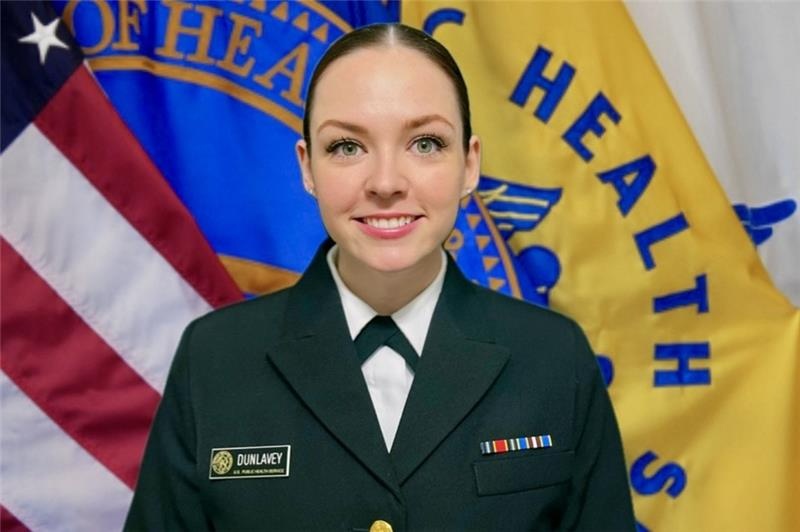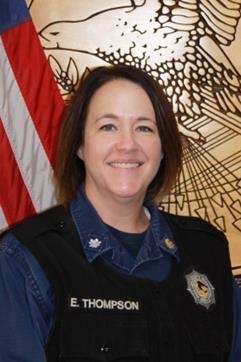Webinar Summary:
Commander Beth Thompson, National Lead for the Federal Bureau of Prisons HIV Pharmacy Consultants, and Lieutenant Commander Alyson Dunlavey, a Transitional Care Pharmacist, illustrate the significance of harm reduction in the correctional setting. Join these clinical pharmacists as they identify strategies to implement harm reduction programs that combat substance use and infectious disease syndemics in the correctional setting and promote successful reintegration of incarcerated adults into society.
This webinar is part of the National Institute of Corrections Clinical Pearls series. The series explores how to integrate clinical pharmacists into primary care. Session participants will learn how to identify best practices for carceral team medicine and clinical pearls in disease states affecting adults in custody.
Webinar Learning Objectives:
During this 60-minute webinar, participants will:
- Explain the principles of harm reduction and the significance of harm reduction in the correctional setting.
- Identify evidence-based harm reduction programs that reduce the risk of opioid overdose and HIV transmission upon reentry to the community.
- Discuss common obstacles to implementing harm reduction in correctional facilities and propose solutions for overcoming challenges.
Series Take Aways:
During this webinar series, participants will:
- Define the continuum of opportunities for pharmacist integration in clinical practice.
- Analyze different correctional systems to determine where pharmacists can be included to develop more efficient operations within correctional facilities, reducing costs, improving decision-making processes, enhancing safety, and optimizing resource allocation.
- Evaluate the current strategies of disease management within the carceral setting and analyze novel approaches to improve patient care, decrease costs, and optimize resource allocation.
- Envision how implementing novel strategies for the management of complex disease processes can enhance the operation of a correctional institution through technology and a paradigm change, optimizing screening and treatment practices.
- Formulate strategies to use various healthcare disciplines that encourage a collaborative, team approach.
Frequently Asked Questions:
Any employee of a state, federal, local, or tribal correctional jurisdiction with an interest in correctional healthcare.
You can register for the series or a single event.
Follow this link to register in NIC’s WebEx Event Center Webinar series name.
You can sign up for the entire series or individual episodes.
Content Contact
CAPT Chad Garrett, Health Program Manager, Prisons division, National Institute of Corrections
cagarrett@bop.gov
Webinar Technical Contact
Scott Richards, Correctional Program Specialist, Prisons Division, National Institute of Corrections
s1richards@bop.gov
You’ll need a hands-free telephone, headset or earbuds, and an internet-enabled computer. For optimum learning, be in a quiet place, free from distractions/interruptions, sight-and-sound separated from others, where you can concentrate on what is happening during the webinar. Connect to webinar audio bridge via a hands-free telephone or your computer, using earbuds/headset connected to your phone/cell phone, so your hands are free to interact with your keyboard.
While tablets and smartphones are also compatible with WebEx Webinar Center, many of the features are limited, and most devices require that the Cisco WebEx app is installed. Regardless of which device you plan to use, test its compatibility here. This is a quick test, and we strongly encourage you to do this before the webinar. Please have your agency/local IT whitelist NIC’s Webex URL http://nicmeetings.webex.com to allow full connectivity.
NIC strongly recommends consulting with your agency/local IT, as you may encounter pop-up blocking and/or firewall issues that block the NIC Webex webinar URL on your agency device/computer.
Click https://nicic.gov/webinar-vilt-readiness for further information on NIC’s live webinars, including (cost = free!), how to obtain training credit from your agency, and much more!
Educator Bios
Lieutenant Commander Dunlavey

LCDR Dunlavey has over 8 years of experience as a pharmacist with the United States Public Health Service. Her career began with the Indian Health Service in Claremore, OK where she completed a PGY-1 pharmacy practice residency and remained as an inpatient clinical pharmacist for four years. She then transferred to the Federal Bureau of Prisons where she served as staff pharmacist at FCI Elkton and managed a MAT clinic of over sixty patients. LCDR Dunlavey currently serves as a transitional care pharmacist with the FBOP Central Office. Her collateral duties include participating as a member of the FBOP Continuing Education and Pharmacovigilance Advisory Groups and serving as a Regional Substance Use Disorder Clinical Pharmacist Consultant.
Commander Beth Thompson



